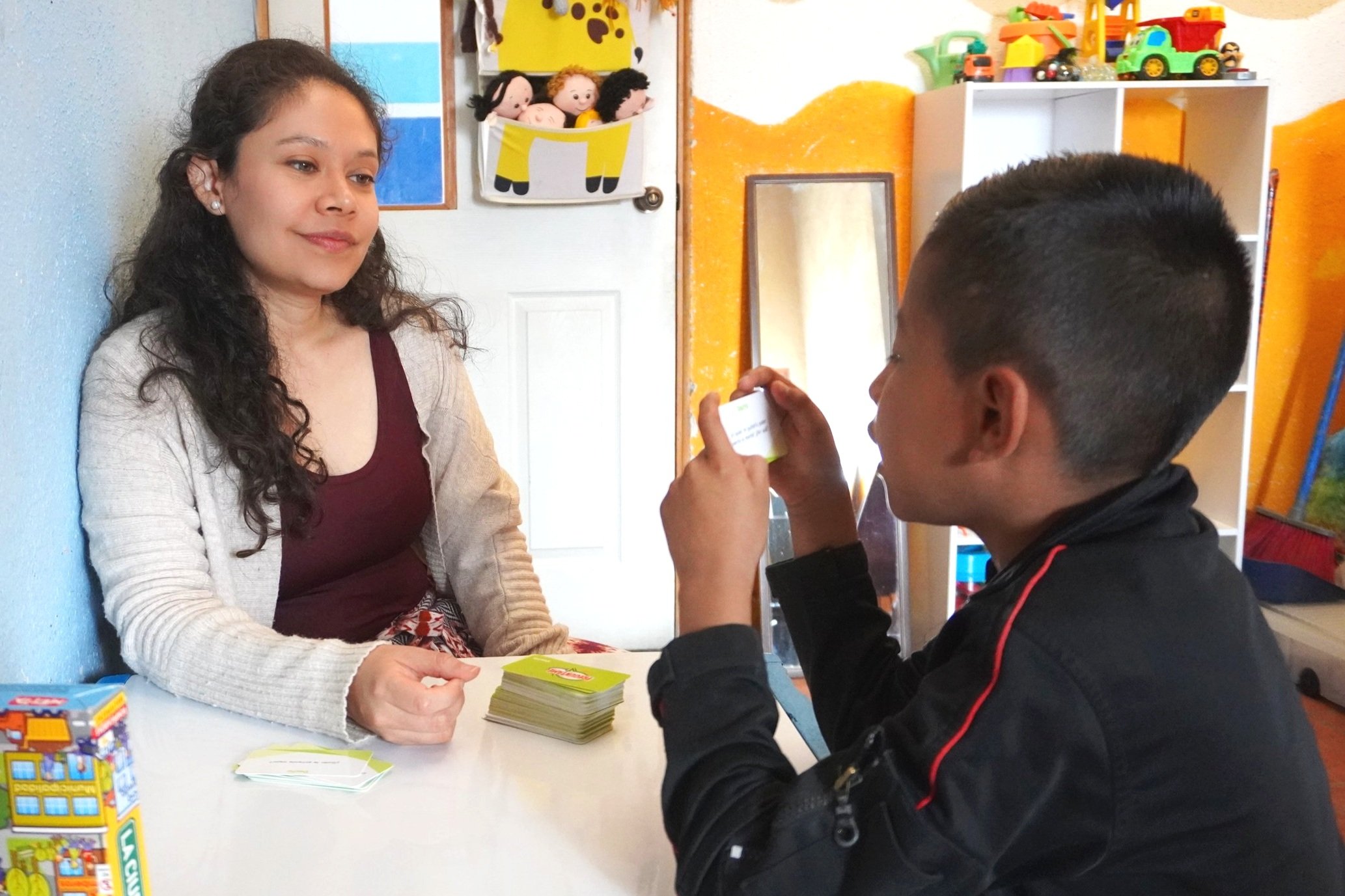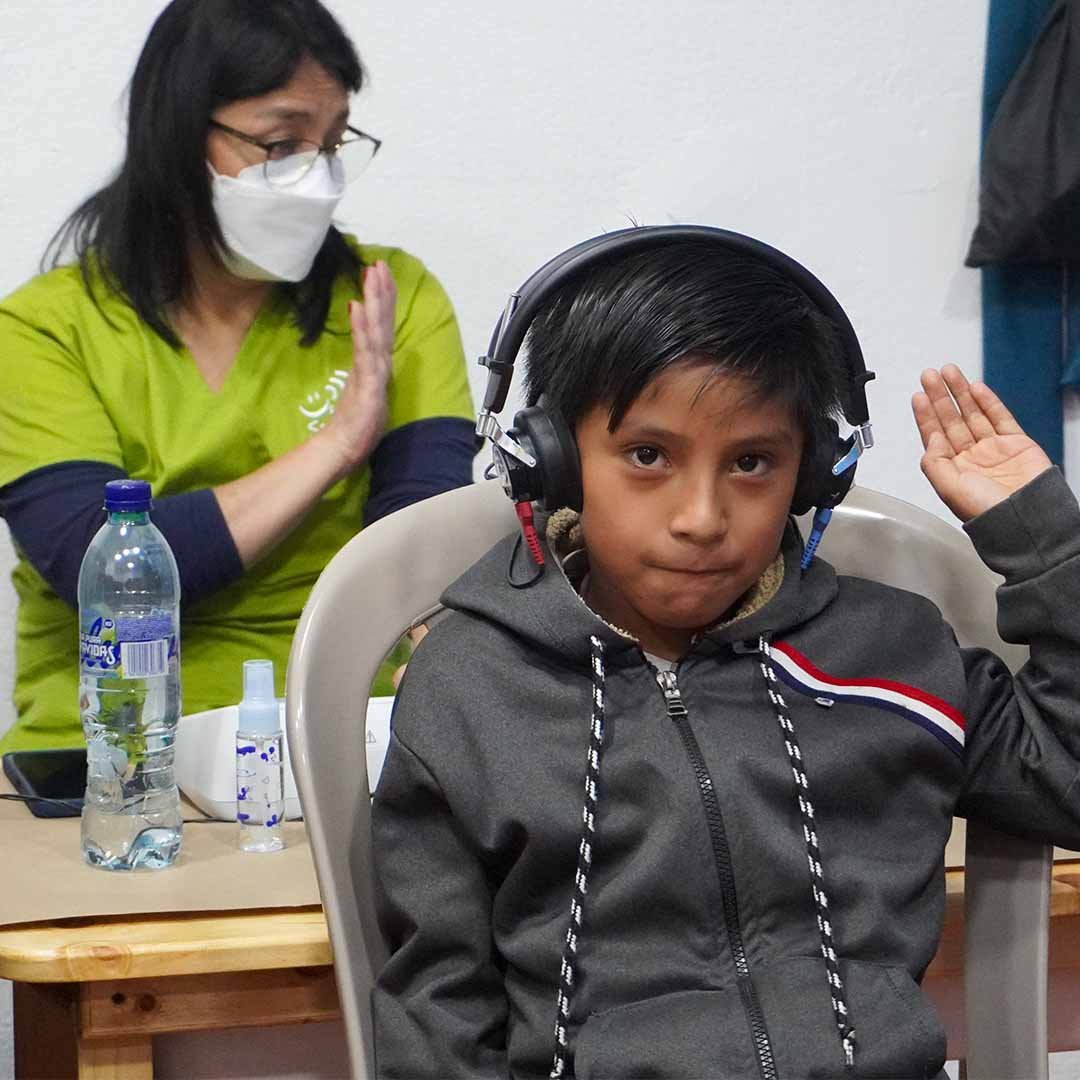
Education is key to breaking the cycle of poverty, but it requires a foundation of robust support to be truly effective. EFTC's efforts aim to address these multifaceted needs, ensuring our students not only access education but also thrive within it.
The Nurture Network encompasses three critical areas not covered by our EFTC Amigo program: Healthcare, Wellbeing & Community, and Special Education Support.
Altogether, the three program areas face a funding shortfall exceeding $96,000 (£78,000). By giving as little as a dollar,, pound, or euro a day, you can help sustain these vital services.
Our Focus
-
Celena, our school nurse, provides comprehensive care to everyone at the school. This includes:
• Addressing malnutrition, domestic abuse, drug use, and eating disorders.
• Providing long-term medical care support, including medication and referrals for further examinations.
• Administering nutritional supplements.
• Conducting regular screenings for all students, including dental, hearing, ophthalmology, deworming, and weight/height evaluations.
• Implementing preventative health programs, including vaccinations, sexual health, violence prevention, and personal hygiene.
• Last year alone, Celena attended to 1,036 instances of medical needs.
-
Michelle, our on-site psychologist, is always available for any of our students’ needs:
• Providing tailored support through individual assessment, counselling, and therapy.
• Identifying broader areas of concern for school-wide preventative campaigns on topics like body image, self-care, and bullying.
• Running support groups and creating safe spaces for discussions.
Aracely, our Social Programme Director, ensures staff training in best practices to meet all students' unique needs. For severe cases, we facilitate external and legal interventions, alongside legal support for students and families. Additionally, our "School for Parents" offers workshops on themes like sensorial stimulation and health hygiene.
-
Our Special Education Coordinator, Gustavo, is responsible for diagnosis and direct patient support:
• Helping families understand their child’s diagnosis.
• Working closely with students, parents and school staff to create individualised goals and work plans.
• Facilitating professional development for our school staff.
Our speech therapist, Mylin, addresses speech difficulties related to structural speech organ issues and developmental delays caused by a lack of early childhood stimulation, by:
• Working with students to improve their articulation whilst also teaching them techniques to mitigate issues and improve confidence.
• Facilitating a language development class for our kindergarteners.
• Running a sensory stimulation programme for our kindergarten and early primary students.
We also work to improve community awareness through collaboration and partnerships. For SEN students considering further education, we will liaise with local institutions and support students as they make the transition.
What can I do to help?
By contributing as little as one dollar, pound, or euro a day, you can help maintain these essential services at the School of Hope. Use our US or international donation forms below, or read on to learn more about the difference your donation will make. While the minimum monthly contribution to the Nurture Network is $/£/€30, you’re welcome to increase your impact by giving more.
How will my contribution be used?
Our budget encompasses the operating costs for healthcare, mental health care, and Special Education services—areas not covered by our EFTC Amigo program.
This includes the salaries of our dedicated team—our Social Program Director, nurse, psychologist, and Special Education team—along with the resources and materials they require to provide the best care. We also cover external support for our students, like hospital visits and specialized screenings. Despite our staff's passion for their work, covering these ongoing costs remains a challenge.
How will I stay updated?
Every quarter, we'll share exclusive updates directly to your inbox, featuring stories from the school, including videos and testimonials from our staff and students. These updates will cover the successes and struggles of our programme, providing insight into its impact in our community.
As an inaugural member of the Nurture Network, your feedback will help shape these communications, as we will survey our members regarding their preferences for receiving updates and the content they are most interested in hearing about from us.
Gallery
Social Welfare in Guatemala
In Guatemala, particularly in impoverished areas like Jocotenango, the social support and healthcare system is severely limited.
-
Guatemala's healthcare system is notably fragmented, with significant disparities especially affecting rural and indigenous populations. The public sector, which is the primary healthcare provider for most of the population, struggles with underfunding and limited services. This leads to a reliance on private services, which are beyond the means of impoverished communities like the one we serve, widening the country's healthcare gap.
Access to reproductive health care is another critical issue, with significant disparities in access to and use of contraception. This is why we now have a Reproductive Health Coordinator at the school.
-
Only 1% of Guatemala’s health budget is dedicated to mental health, with fewer than one psychiatrist and seven psychologists for every 100,000 people. Few resources exist to support those with mental health problems in poor communities despite research showing that poverty and mental health are closely linked.
-
In Guatemala, people with disabilities face widespread discrimination as well as limited access to education and employment opportunities. Many children with disabilities never attend school and for those who do, insurmountable barriers make them more likely to repeat grades and to drop out.
85% of Guatemalan people with disabilities are unemployed. Most local high schools are not used to working with students with special needs and require a lot of guidance on adapting their teaching. As it stands, people with special needs in Guatemala have very little access to opportunities, threatening their chances of gaining employment.
-
Many of our students have complex home situations where they are exposed to abuse, neglect and violence. They often lack early stimulation and access to educational resources at home. On top of this, we are still feeling the lasting impact of the pandemic; the disruptions to learning caused by the pandemic also came with disruptions to social development and communication.
We have seen a notable increase in multidisciplinary cases, especially among our younger students. These students present complex needs encompassing health, special education, speech therapy, and social support. By working cohesively rather than in isolation, we’ve been able to create more effective, comprehensive support plans tailored to the unique needs of each student.












